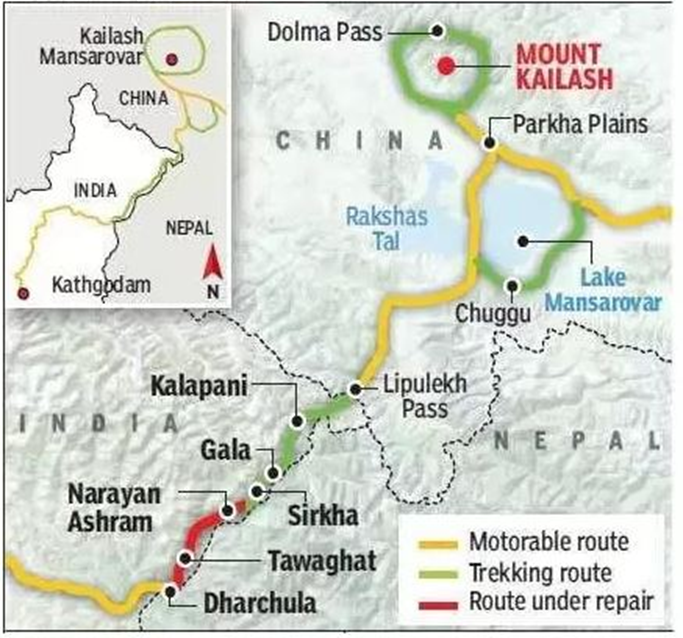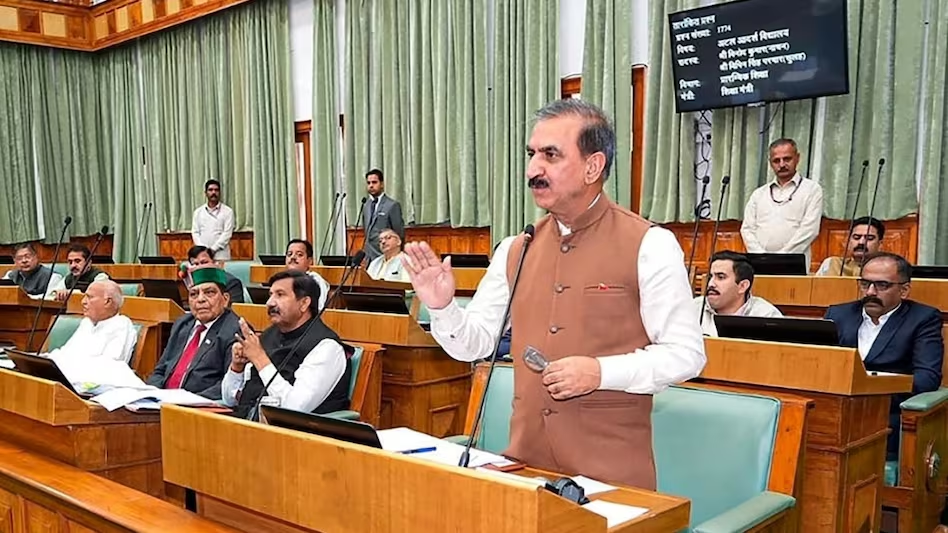- Courses
- GS Full Course 1 Year
- GS Full Course 2 Year
- GS Full Course 3 Year
- GS Full Course Till Selection
- Answer Alpha: Mains 2025 Mentorship
- MEP (Mains Enrichment Programme) Data, Facts
- Essay Target – 150+ Marks
- Online Program
- GS Recorded Course
- Polity
- Geography
- Economy
- Ancient, Medieval and Art & Culture AMAC
- Modern India, Post Independence & World History
- Environment
- Governance
- Science & Technology
- International Relations and Internal Security
- Disaster Management
- Ethics
- NCERT Current Affairs
- Indian Society and Social Issue
- NCERT- Science and Technology
- NCERT - Geography
- NCERT - Ancient History
- NCERT- World History
- NCERT Modern History
- CSAT
- 5 LAYERED ARJUNA Mentorship
- Public Administration Optional
- ABOUT US
- OUR TOPPERS
- TEST SERIES
- FREE STUDY MATERIAL
- VIDEOS
- CONTACT US
Lipulekh Pass: Gateway to the Himalayas
Lipulekh Pass: Gateway to the Himalayas

Indian traders have been engaging in border trade with China through the Lipulekh pass in Pithoragarh district since 1992.
- They are now urging the central government to address the closure of the trade route due to the Covid-19 pandemic in 2019.
- The traders are concerned about their stored goods in Tibet and seek the resumption of trade.
Key Points:
1. Background: Indian traders have been engaging in border trade with China through the Lipulekh pass since 1992.
2. Closure of Trade Route: The trade route was closed suddenly after the outbreak of the Covid-19 pandemic in 2019, forcing Indian traders to return from the Taklakot mart in Tibet, leaving behind their goods.
3. Stored Goods: Indian tribal traders from Dharchula alone have left trading items worth Rs 15 lakh in Taklakot Mart of Tibet, with no information on their current state.
4. Request to Government: The traders have sent 22 applications to the government of India requesting it to take up with the Chinese authorities the reopening of the trade route through Lipulekh pass, but have received no response so far.
5. Comparison with Nepal: China has recently begun implementing a pact with Nepal to open all 14 trade passes, which has raised concerns among Indian traders that they may be left behind.
Significance:
1. Economic Impact: The closure of the trade route has resulted in a significant economic loss for Indian traders, with over 450 traders affected.
2. Trade Relations: The resumption of trade through the Lipulekh pass is crucial for maintaining trade relations between India and China.
3. Regional Dynamics: The development has implications for regional dynamics, with China's increasing engagement with Nepal and other neighbouring countries.
Concerns and Demands:
1. Resumption of Trade: The traders are demanding the resumption of trade through the Lipulekh pass.
2. Access to Stored Goods: The traders are seeking permission to visit Taklakot to retrieve their stored goods, which have been lying there for over 5 years.
3. Apprehension about Nepalese Traders: The traders are concerned that the mart made for Indian traders in Gakkhu town of Taklakot could be handed over to Nepalese traders.
About Lipulekh Pass:
Location:
- The Lipulekh Pass is situated near the trijunction of India, Nepal, and China.
- It connects the Indian state of Uttarakhand with the Tibet region of China.
Altitude and Terrain:
-
The pass lies at an altitude of approximately 5,334 meters (17,500 feet).
- It is known for its challenging terrain, featuring steep ascents and rugged landscapes.
Ancient Trade Route:
- Lipulekh Pass has been utilized for centuries as a trade route, connecting the Indian subcontinent with the Tibetan plateau.
- It facilitated trade between India and China for centuries.
Religious Significance:
- The pass holds religious significance for Hindus.
- It is an integral part of the Kailash Mansarovar Yatra, a sacred pilgrimage to Mount Kailash and the nearby Mansarovar Lake, considered the abode of Lord Shiva.
Historical Significance:
- Lipulekh Pass is historically significant as the first Indian border post opened for trade with China in 1992.
- This move strengthened bilateral trade relations between the two countries.
Tibetan Plateau:
- The Tibetan plateau is the largest area of uplifted crust on Earth.
- It is a vast high plateau of southwestern China, including the Tibet Autonomous Region and parts of Qinghai, Sichuan, and Xinjiang provinces.
- It is surrounded by high mountain ranges like the Hindu Kush, the Himalayas, the Kunlun Mountains, and the Qilian Mountains.
Must Check: Best IAS Coaching In Delhi



